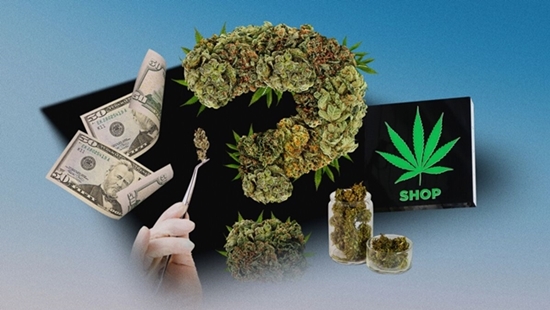Risks and Benefits Associated With Cannabis Edibles
Risks and Benefits Associated With Cannabis Edibles
In general, weed products are nontoxic, and there is a very low risk of a dangerous overdose.
This particular is possible to ingest too much THC, though, which can cause some uncomfortable side results. Research in the International Journal of Drug Policy resource notes this THC overconsumption is much more likely with food items, as, unlike with smoking, your body will not give the person any warning symptoms. Merely by the time any indications of overdose are obvious, it is simply too late, and your body is already processing the edible.
Overconsumption of cannabis or THC products can cause several side results, including:
impaired attention and inability to focus
short-term storage space reduction
feeling sick
really low hypotension
muscle contractions or spasms
rapid cardio rate
rapid deep breathing rate
slurred discussion or mumbling
anxiety attacks and severe stress
mood shifts
hallucinations
delirium
Unintended usage of THC by children or those who have no prior background of using THC products may be more likely to cause severe responses.
Ready-to-eat use has triggered an increase in turmoil room visits. The particular reason may be that those who are inexperienced with food items take too much, resulting in concerning symptoms.
Another risk that individuals ought to know about is a sensitive response to components in the ready-to-eat.
Cannabinoids need to combine to body body fat for you to process them. A lot of manufacturers use products such as whole milk and butter in their foods to help this method. Someone who has lactose intolerance may, therefore, have a chemical reaction to an edible.
Several other ingredients to buy include common allergens, such as wheat and nut products.
A person with a severe fan or wheat hypersensitive attack should contact the maker to ask about any possible contamination before using the product.
Health Benefits
Food items are a great way of adding cannabinoids such as THC and cannabidiol (CBD) to the body. The specific National Center for Complementary and Integrative HealthTrusted Source see that the F-D-A have not approved cannabis for any medical use but have approved real isolates of cannabinoids for limited specific uses.
The body of research into cannabinoids grows as cannabis becomes decriminalized in many components of the world. Anecdotally, people find that cannabinoids help treat a amount of conditions, including:
chronic pain
irritation
opioid dependency
symptoms of post-traumatic stress disorder (PTSD)
feeling sick
loss of craving for food
anxiety
glaucoma
epilepsy
inflammatory intestinal disease
multiple sclerosis
rest issues, such as insomnia
symptoms triggered by malignancy treatment
Researchers must still research the medical associated with weed to prove the security and efficiency as a treatment.
When You Should See A Doctor
Within most cases, food items are secure and nontoxic in grown-ups. Individuals who have strong responses should try setting up and waiting around for the part results to complete before seeking medical attention.
People who have severe responses from taking very large doses should seek emergency medical attention. Children who get keep of edibles accidentally may become more likely to experience severe reactions. Additionally, people who no longer realize food items and eat too much may have more powerful responses.
Anyone experiencing symptoms, like a rapid cardiovascular rate, heart problems, and difficulty inhaling and exhaling, should seek medical assistance.




Comments
Post a Comment